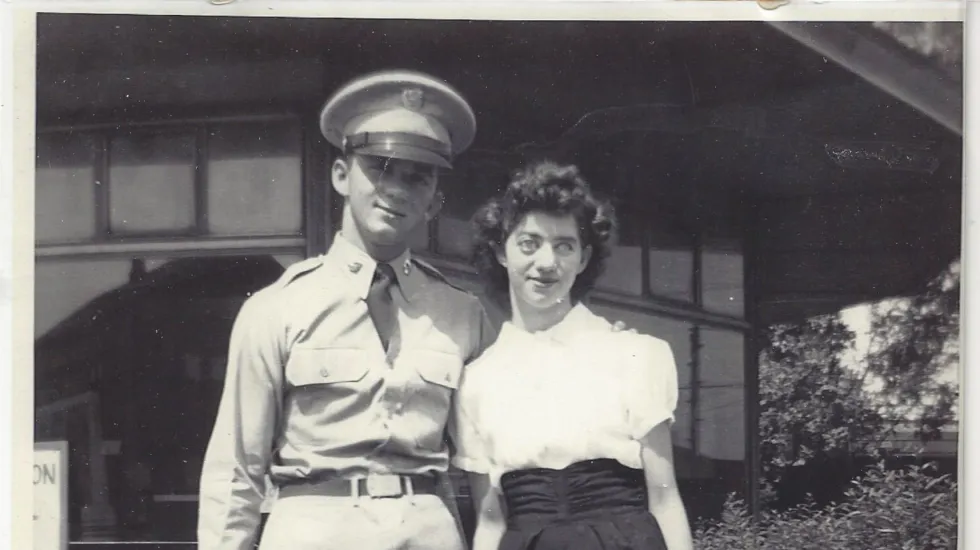
Other children stared at Delores Milano and told her she was ugly.
And the Far South Side girl, left blind from glaucoma, believed it.
That’s when her brother, her only sibling, would pull her close and say: “Sis, you are so beautiful.”
She never forgot that.
David B. Milano was his sister’s protector — that was until he went off to war in Korea and never came back.
A private in the Army, David Milano was declared missing in action in December 1950.
David Milano finally came home this week — his remains returned to the family in a flag-draped casket. His funeral is Friday.
His sister won’t be there. She died seven years ago, not knowing his remains had been found.
“For some reason, my mom, in her heart and mind, she always thought they would find him,” said Kevin Jordan, one of Delores Milano’s three sons, who lives in Layton, Utah.
David Milano grew up in the South Deering “projects,” Kevin Jordan said. His family was so poor, that one year for Christmas, he and his sister each received only a single orange.
David Milano didn’t have to fight. He was an only son. He could have avoided Korea, but he was a patriot and wanted to fight alongside his buddies, Kevin Jordan said. His mother had to sign for him because David Milano was only 17.
He was deployed to the Chosin Reservoir, a narrow mountain lake in Northeast Korea — a desolate place of “unforgiving cold,” according to the U.S. Department of Defense’s report on the circumstances surrounding David Milano’s final days.
In November 1950, Chinese forces began pouring into the region, mounting attack after attack against U.S. forces. David Milano, it was assumed, was killed during the attempted U.S. retreat to the south.
David Milano’s family received a telegram in January 1951, saying that he was missing in action.
And that was how things remained for decades. David Milano’s mother would watch the TV news for any reports about recovered remains. Others’ loved ones came home. But not David Milano.
Delores Milano grew up, got married, and eventually moved from the Far South Side to Utah, where her husband, also blind, found work as a computer programmer.
Wherever she lived, Delores Milano hung photographs of her brother — so that others could see them and never forget. She named one son after her brother and gave another son David as his middle name.
She died in 2015 of complications from pancreatic cancer.
Three years later, in images broadcast around the world, President Donald Trump met with North Korean leader Kim Jong Un. The summit didn’t lead to a lasting de-escalation of tensions. But, as a gesture of goodwill, 55 boxes of the unidentified remains of U.S. servicemen were flown to Hawaii.
Two years ago, David Milano’s family learned — thanks to DNA testing — that Box No. 24 contained a femur and other skeletal remains belonging to the lost serviceman.
And in February of this year, Kevin Jordan and his brother, David Jordan, met with an Army representative to discuss their uncle. The man said he had a photograph on his phone he could share.
“He turned his phone and showed me my uncle’s remains, and it just hit me hard. I wasn’t prepared for it,” Kevin Jordan said. “I was choked up. I had tears in my eyes.”
On Tuesday, those remains arrived at Salt Lake City International Airport. Kevin Jordan, his brother and his sister, Delores Bittion, were on the tarmac under cloudy skies when an American Airlines plane eased up to the gate. The pilot politely asked passengers to remain in their seats while a military honor guard removed Milano’s casket.
“It was surreal — words can’t describe it,” Kevin Jordan said, struggling to sum up the moment.
David Milano’s funeral is Friday. He’ll be given a 21-gun salute. His sister’s second-grade rosary from her first Communion will be placed in the casket with his remains, Jordan said.
Then he’ll be buried beside his sister and their mother.







